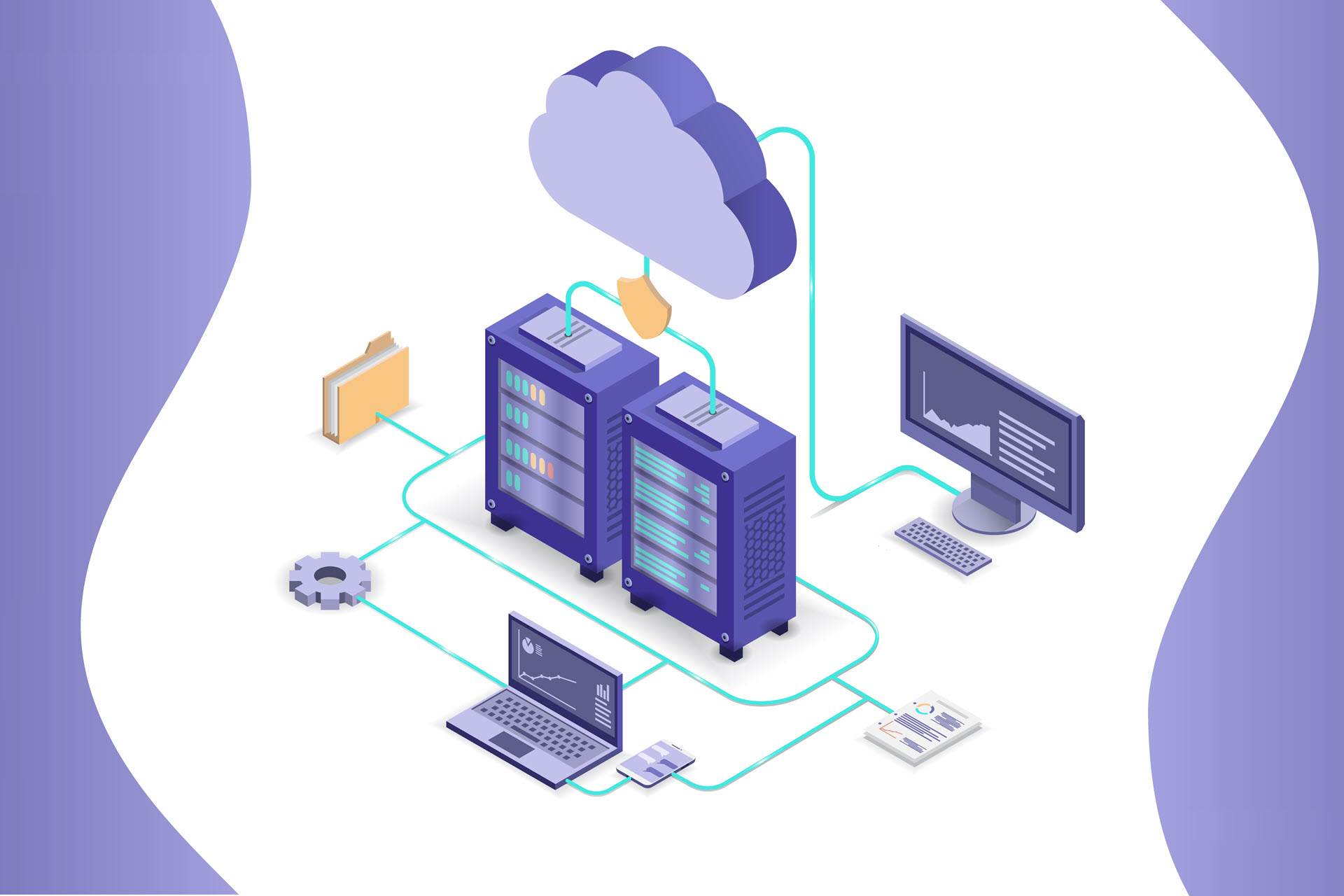OVHcloud is a cloud computing solution created by OVH, a French company specializing in VPS, dedicated servers, and enterprise-scale web services. Although it is a popular cloud hosting choice, especially among European companies, OVHcloud users often report a difficult-to-navigate user interface, confusing pricing models, and unsatisfactory customer service and support.
This article presents 10 viable OVHcloud alternatives for individuals and large-scale organizations seeking a reliable and affordable cloud provider. Read on to learn which provider might be a better fit for you.
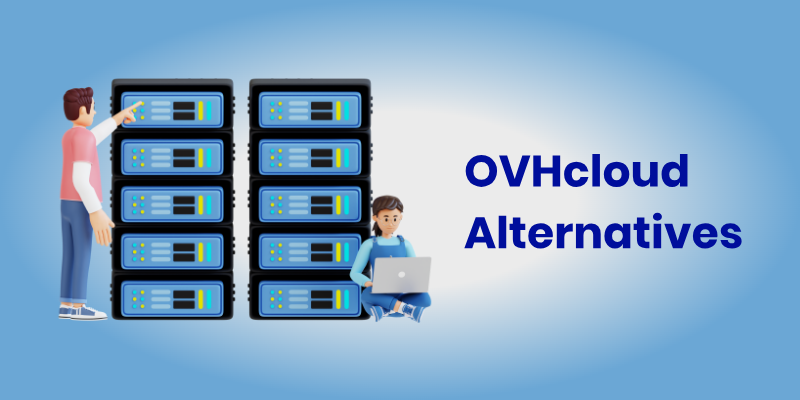
Top 10 OVHcloud Alternatives
Given OVHcloud's broad range of cloud storage and hosting solutions, this list of alternatives encompasses providers that offer either wholly or partially comparable services. So, the table below introduces each provider and a brief comparison of the main features:
| Provider | Focus | Strengths | Key Services | Pricing |
|---|---|---|---|---|
| phoenixNAP | IaaS, Dedicated Servers, Bare Metal Servers, Bare Metal Cloud, Data Security Cloud, Managed Private Cloud, Colocation. | Global network footprint. High performance, control, and customization. | Bare Metal Cloud, Data Security Cloud, Object Storage, Disaster Recovery. | Hourly and monthly pricing models and long-term reservations are available to help minimize cloud computing costs. |
| Amazon Web Services (AWS) | A broad range of cloud services, including IaaS and PaaS. | Extensive services, global reach, mature ecosystem. | EC2, S3, RDS, Lambda, AI/ML, IoT. | Pay-as-you-go, reserved instances, spot instances, savings plans. |
| Microsoft Azure | Hybrid Cloud, enterprise solutions. | Microsoft integration, hybrid cloud solutions, enterprise support. | Virtual Machines, Azure SQL, Blob Storage, Functions, DevOps. | Pay-as-you-go, reserved instances, Azure Spot, Hybrid Benefit. |
| Google Cloud Platform (GCP) | Data Analytics, Artificial Intelligence, Machine Learning, Kubernetes. | Competitive pricing, Kubernetes. | Compute Engine, Cloud Storage, BigQuery, Kubernetes Engine, AI Platform. | Pay-as-you-go, sustained use, and committed use discounts. |
| Oracle Cloud Infrastructure (OCI) | Databases, Enterprise Applications, Hybrid Cloud. | Strong databases, enterprise apps, and global reach. | Autonomous Database, Exadata Cloud, Compute, Storage, Networking. | Pay-as-you-go, reserved instances, flexible subscriptions. |
| IBM Cloud | Hybrid Cloud, Artificial Intelligence, Security. | Hybrid cloud, security, and enterprise solutions. | Virtual Servers, Containers, Databases, AI, Security, Blockchain. | Pay-as-you-go, pay-per-use, reserved instances. |
| Akamai Connected Cloud | Edge Computing, Content Delivery, Security. | Global edge network, content delivery, and security solutions. | Edge Compute, CDN, Media Delivery. | Pay-as-you-go, based on usage and bandwidth. |
| Hetzner Cloud | Dedicated Servers, VPS, Cloud Solutions. | Competitive pricing and good performance. | VPS, Dedicated Servers, Cloud Storage, Load Balancing. | Competitive and transparent pricing models. |
| Vultr | Dedicated Servers, VPS, Cloud Solutions. | Global reach, high performance, simple API. | VPS, Dedicated Servers, Block Storage, Object Storage. | Pay-as-you-go, predictable pricing. |
| Scaleway | Dedicated Servers, VPS, Cloud Solutions. | Competitive pricing and good performance. | VPS, Cloud, Dedicated Servers, Load Balancing, Object Storage. | Competitive pricing, many pricing models. |
OVHcloud is Europe-based and focuses on data sovereignty. Therefore, most alternatives presented below emphasize security and compliance and have a strong European presence.
phoenixNAP BMC
phoenixNAP is a global provider of IaaS solutions known for its Colocation and Bare Metal Cloud (BMC) offering. BMC merges the power and control of dedicated servers with the flexibility and scalability of the cloud. Therefore, this makes pNAP ideal for businesses demanding high performance and maximum control over their IT infrastructure.
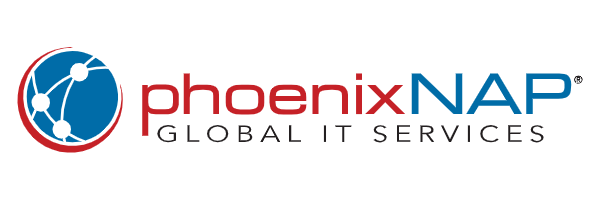
The following are the top BMC features:
- Global reach & low latency. Users can leverage on-demand deployments across global data centers to ensure optimal performance and minimize network latency.
- API-driven automation. We offer a robust API for server provisioning, management, networking, and billing.
- Infrastructure as Code (IaC) support. Seamless deployment automation uses IaC tools like Terraform, Ansible, and Pulumi.
- Developer-centric approach. Powerful APIs, CLIs, and SDKs designed to simplify integration into existing DevOps pipelines.
- Enhanced security and compliance. Robust security features, including DDoS protection, intrusion detection, and 24/7 security monitoring. BMC is PCI and HIPAA-compliant.
- Customizable and cost-effective solutions. A wide range of pre-configured instances and a cloud pricing calculator that helps users estimate the costs for their specific needs.
- Flexible billing options. Hourly or monthly pricing models, with long-term reservations available for cost optimization.
phoenixNAP BMC is an excellent OVHcloud alternative for compliance-centric industries like healthcare, finance, e-commerce, etc. Moreover, an easy-to-use interface makes BMC an ideal solution for companies that want to eliminate complexity from server provisioning.
Similarly, resource-intensive workloads such as big data analytics, machine learning (ML), high-frequency trading, and database applications can rely on BMC's performance. Hence, it is more predictable than OVHcloud's virtualized cloud instances.
Amazon Web Services (AWS)
Amazon Web Services (AWS) is the most comprehensive and widely adopted global cloud platform. It caters to many use cases and offers a diverse service portfolio, from compute and storage to artificial intelligence (AI), machine learning (ML), and the Internet of Things (IoT).
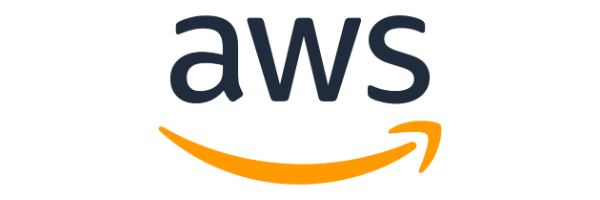
The main features of AWS are:
- Extensive global infrastructure. AWS has a massive global network of data centers that ensures high availability, low latency, and disaster recovery capabilities through features like multi-AZ deployments and cross-region replication.
- Rich service portfolio. Compute options include EC2 instances, Lambda functions, and ECS/EKS for containerized workloads. AWS also provides various storage services, such as S3, EBS, and Glacier, with different performance and cost tiers.
- Advanced networking capabilities. AWS offers VPCs, subnets, security groups, and network ACLs for granular control over network traffic. Direct Connect and Transit Gateway connect to on-premises networks and other AWS accounts.
- Security and Compliance. IAM, KMS, and security groups protect data and applications. AWS adheres to many industry standards and certifications, such as ISO 27001, SOC 2, and HIPAA.
- Mature AI/ML services. AI/ML tools such as SageMaker, Rekognition, Comprehend, and Transcribe enable businesses to build, train, and deploy ML models.
AWS can be a compelling OVHcloud replacement, especially for businesses that can benefit from Amazon's large-scale offer. This includes large enterprises, tech companies, e-commerce platforms, data-driven businesses, or organizations with growing infrastructure.
Note: Check out our guide to AWS alternatives.
Microsoft Azure
Microsoft Azure provides extensive computing, storage, database, networking, and analytics services. It provides SaaS, PaaS, and IaaS capabilities and supports many programming languages, tools, and frameworks.
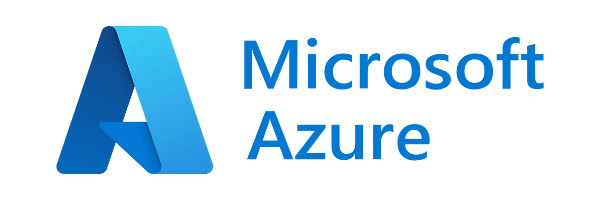
The most notable features of Microsoft Azure are:
- Hybrid and multi-cloud capabilities. Because Azure integrates well with on-premises environments and other cloud providers' solutions, it efficiently enables hybrid and multi-cloud deployments.
- Microsoft system integration. Windows Server, .NET, Office 365, and other Microsoft services work seamlessly with Azure.
- Focus on innovation. Azure provides customers with cutting-edge solutions for technologies like AI/ML, IoT, and edge computing.
- Advanced security and compliance tools. Azure offers security features like Azure Security Center, Azure Firewall, Azure Key Vault, and compliance certifications like ISO 27001, SOC 2, and HIPAA.
- Global reach. Azure's global network of data centers ensures high availability and low latency anywhere globally.
As an alternative to OVHcloud, MS Azure is particularly viable for companies that rely on Microsoft technologies and could benefit from Microsoft service integration. Also, integrating with on-premises environments can be a key benefit for businesses in terms of their infrastructure.
Google Cloud Platform (GCP)
Google Cloud Platform (GCP) is a suite of cloud computing services provided by Google. GCP provides a platform for businesses to build, deploy, and manage applications using on the same infrastructure used by company tools like Gmail and Google Search.
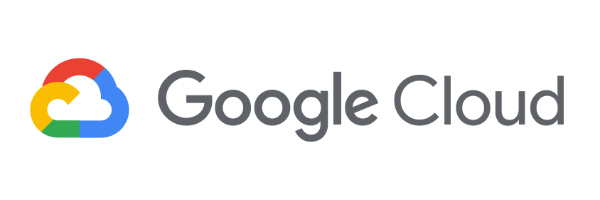
GCP's main features include:
- Industry-leading data analytics. Services like BigQuery (a data warehousing service) and Dataflow (a managed service for stream and batch data processing) make GCP the best solution for data analytics.
- AI/ML capabilities. TensorFlow, Vertex AI, and Cloud Vision API offer advanced machine-learning techniques for GCP users.
- Focus on open source. GCP focuses on open-source tools and services and provides modern technologies such as Google Cloud Functions (serverless computing) and GKE (Kubernetes engine).
- Global network and low latency. Google's fiber optic network offers high performance, low latency, and high availability.
In summary, businesses with data analytics and machine learning needs will find GCP a strong alternative to OVHcloud. Also, GCP appeals to companies focused on big data and deep learning, and those needing solid integration with Kubernetes and TensorFlow.
Oracle Cloud Infrastructure (OCI)
Oracle Cloud Infrastructure (OCI) is a platform that supports many workloads, from traditional enterprise apps to modern cloud-native solutions. While OCI focuses on database services, it also provides a set of compute, storage, networking, and analytics features that make it a complete cloud computing solution.
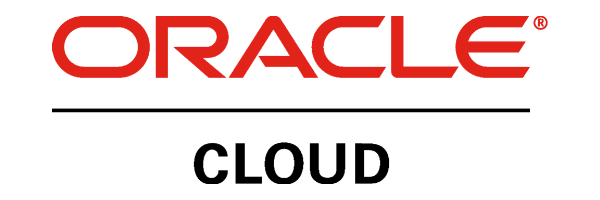
The main features of OCI are:
- High-performance database. Enterprise-grade database management systems like Oracle Database offer high availability, disaster recovery, and complex transaction processing.
- High-performance storage. OCI offers block storage and object storage, as well as file storage, data transfer, and backup solutions.
- Oracle software integration. OCI integrates with Oracle's enterprise apps like ERP, CRM, and HCM.
- Security. OCI offers comprehensive security features like data encryption and identity management.
- Real-time data analytics. Oracle Cloud Data Science, Oracle Analytics Cloud, and integration with data lakes support real-time data analytics and business intelligence.
Oracle Cloud Infrastructure is a suitable OVHcloud replacement for companies already using Oracle apps (e.g., ERP, CRM, or databases). Furthermore, businesses prioritizing strict data security and compliance (like healthcare or financial services) may benefit from OCI's robust security.
IBM Cloud
IBM Cloud is a flexible and scalable cloud platform offering IaaS, PaaS, and SaaS solutions. The platform focuses primarily on AI, machine learning, and enterprise integration.

The most notable features of IBM Cloud are:
- AI and data focus. IBM Cloud features a suite of AI and data services, including machine learning and natural language processing tools like Watson AI.
- Hybrid and multi-cloud capabilities. Tools like IBM Cloud Satellite, Cloud Pak for Multi-cloud Management, and IBM Cloud Object Storage provide a stable foundation for hybrid and multi-cloud deployments.
- Managed database services. IBM Cloud offers managed services for SQL and NoSQL databases such as IBM Db2, MongoDB, and PostgreSQL.
- Enterprise-grade security. Security features like threat intelligence and data encryption protect sensitive data.
IBM Cloud is a good alternative for OVHcloud, particularly for AI and data-driven organizations. Companies with diverse infrastructure may benefit from IBM Cloud's hybrid and multi-cloud features.
Akamai Connected Cloud
Akamai Connected Cloud (formerly Linode) is a global platform for delivering secure, high-performance apps. For example, Akamai's big edge network focuses on providing edge services, content delivery, and security services.
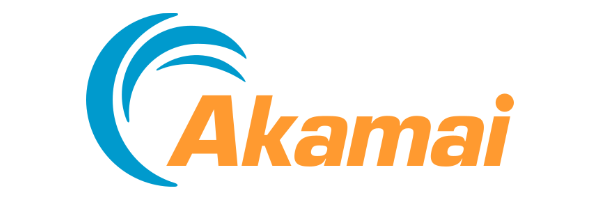
The essential features of Akamai include:
- Global network. With a presence in over 130 countries, Akamai can offer ultra-low latency and high availability for demanding applications. The low latency is significant for edge computing use cases such as gaming, streaming, and IoT.
- Content Delivery Network (CDN). With over 275 thousand servers worldwide, Akamai is among the leading CDN providers.
- Digital Experience Optimization (DXO). DXO uses content delivery techniques like caching, compression, and image optimization to improve responsiveness and load times.
- Advanced Security Tools. The provider offers DDoS protection, bot management, web app firewalls, and other tools to protect against cyber threats.
To sum up, Akamai Connected Cloud is a good OVHcloud alternative for businesses that require high-performance content delivery, like media and entertainment companies and e-commerce platforms. Similarly, real-time and interactive apps (e.g., games, financial trading apps, and IoT apps) can perform better in Akamai's edge computing infrastructure.
Hetzner Cloud
Hetzner is a European cloud provider offering high-performance infrastructure, bare metal servers, and dedicated hosting. The provider focuses on delivering affordable services, so it is a frequent choice for small to medium-sized projects.
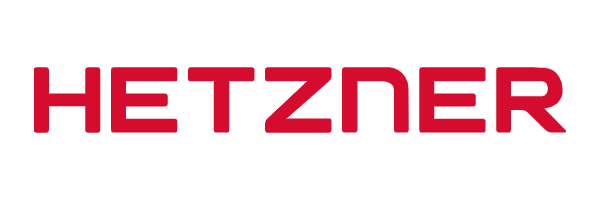
The main features of Hetzner are:
- Customizable instances. Hetzner allows for flexible cloud server configurations, allowing users to configure custom CPU, RAM, and storage parameters.
- Scalable SSD storage. High-performance SSD-based block storage.
- Security focus. Configurable firewalls, DDoS protection, SSH key integration, and two-factor authentication (2FA) protect Hetzner cloud instances while keeping management simple.
- EU-based data centers. Hetzner's data centers are in Germany and Finland. Therefore, they provide compliance with EU data residency requirements.
Hetzner Cloud can be considered a direct replacement for OVHcloud. Both services are based in Europe and cater to small to medium-sized companies that need capable cloud infrastructure for a competitive price.
Note: Discover Hetzner alternatives.
Vultr
Vultr is a global cloud computing provider with a strong European presence. It is known for its affordable prices and high-performance VPS. Aside from VPS, Vultr also offers cloud storage, bare metal servers, and a managed Kubernetes service.
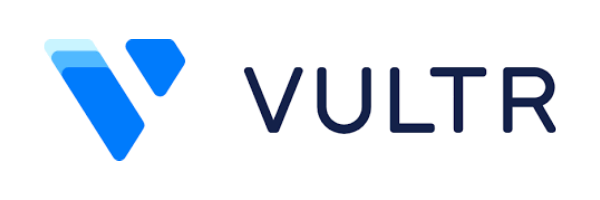
Below are the most notable features of Vultr:
- High-performance VPS. Vultr offers various CPU architectures (e.g., AMD EPYC, Intel Xeon), high-frequency CPUs, and NVMe SSD storage.
- Simplicity and User-friendliness. Vultr features a user-friendly interface and a simple pricing model.
- Focus on developer experience. A powerful API, automated deployments, and application templates enable rapid provisioning and efficient infrastructure management.
Vultr may be a better choice than OVHcloud for developers who prioritize simplicity and flexibility. Also, DevOps teams will benefit from Vultr's fast server provisioning, one-click application deployments, and the ability to create custom deployment images.
Note: Learn about Vultr alternatives.
Scaleway
Scaleway is a European cloud provider that offers a broad range of cloud services. The offer includes virtual servers, containers, object storage, and managed databases. However, the company focuses on cost-efficiency and scalability and primarily targets startups and developers.
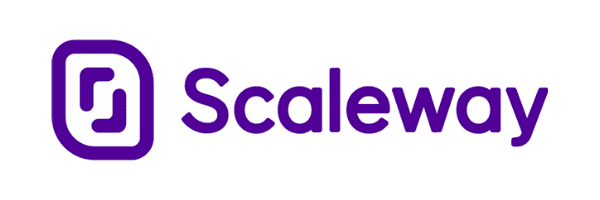
Scaleway's most important features include:
- Support for containers and Kubernetes. Flex and GPU instances are optimized for running containerized workloads. Also, Scaleway provides native Docker support and a managed Kubernetes service (Kubernetes Kapsule).
- Support for custom stacks. Users can create custom stacks for their apps and use Terraform, API access, and CLI tools to automate the deployment of these custom stacks.
- Serverless computing. Scaleway offers developers a way to run applications without managing infrastructure.
Scaleway is a viable OVHcloud alternative for users seeking a more cost-effective and user-friendly option. Nevertheless, the provider remains flexible and scalable and offers simple cloud services.
Selecting the Optimal Cloud Solution Beyond OVHcloud
While OVHcloud's popularity makes it a frequent choice among customers looking for cloud-related services, some of its competitors may be a better fit for your business scenario. By carefully evaluating the strengths and weaknesses of alternative solutions, organizations can make decisions that align with their unique requirements, budget constraints, and long-term strategic goals.



